Text
Understanding how changes in technology impact on the way humans communicate and the ethical issues that surround these changes. (updated version)
Updated with the following feedback:
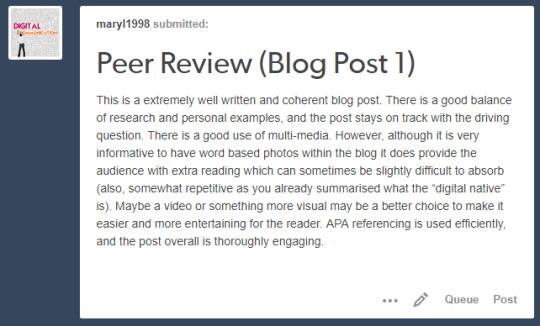
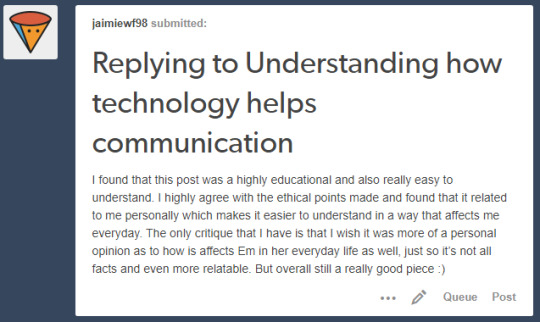
Thanks to the advancements in technology, we can communicate faster and more effectively than ever before.
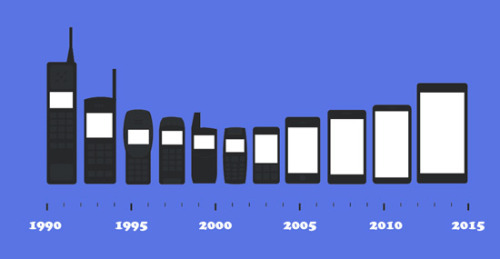
(Marker, 2015)
The fast and constantly changing state of mobile phones, computers, tablets, and other forms of technology have enabled us as humans to find more effective, fast and immediate forms of communication through the likes of instant messaging, facebook, and email. Not to mention the range of communication technology has enabled us to have with people across the world on global issues and topics on platforms such as Twitter, which enables users to quickly and effectively share thoughts and ideas. (Wong, 2016). The evolution of technology has also enabled us to have the highest level of access to an endless expanse of information, at the touch of a button thousands of results appear before our eyes to use at our discretion.
youtube
However there are many ethical issues that have arisen with the rapid changes in technology, some of the following are issues that we may all experience when it comes to the constant technological advancements we are faced with.
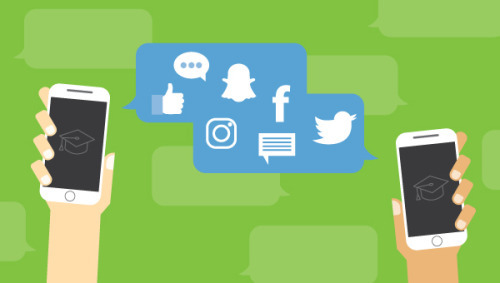
(Willis, 2017)
As each tiny thing we do on our smart devices (phones, laptops, tablets, etc) is tracked and recorded, privacy is a prominent ethical issue. (Carsten Stahl, Timmermans & Flick, 2017). As well as lack of privacy being an issue, loss of personal autonomy is also an issue, as we rely more on it to help us make everyday decisions - what to eat, where to go, what movie to see, what to write that essay on, and so on. (Carsten Stahl, Timmermans & Flick, 2017). As well as the formers, technology also poses an increased risk of identity theft, with our lives based around technology, keeping most of our information on one form of technology or another, the risk of theft of identity becomes higher. (Carsten Stahl, Timmermans & Flick, 2017).
I know I myself have fallen victim to the risks of using technology, with facebook and other social media accounts being hacked and having personal information taken, along with the loss of personal autonomy, due to becoming reliant on often leaving technology such as Siri and Google to be the final decider in many matters. And I know there are many other people out there who have fallen victim too.
References
Carsten Stahl, B., Timmermans, J., & Flick, C. (2017). Ethics of Emerging Information and Communication Technologies: On the implementation of responsible research and innovation. Science And Public Policy, 44(3), 369-381. http://dx.doi.org/https://doi.org/10.1093/scipol/scw069 Marker, G. (2015). Evolution of mobile phones. Retrieved from http://easytechnow.com/learn-technology/the-evolution-of-mobile-phones/ Willis, A. (2017). Social Media and Communication. Retrieved from http://circaedu.com/hemj/how-social-media-changed-the-way-we-communicate/ Wong, W. (2016). How Technology Has Changed the Way We Communicate. WPS Office Blog. Retrieved 17 September 2017, from http://blog.wps.com/how-technology-has-changed-the-way-we-communicate/
8 notes
·
View notes
Text
Understanding how changes in technology impact on the way humans communicate and the ethical issues that surround these changes.

(Marker, 2015)
Thanks to the advancements in technology, we can communicate faster and more effectively than ever before. The fast and constantly changing state of mobile phones, computers, tablets, and other forms of technology have enabled us as humans to find more effective, fast and immediate forms of communication through the likes of instant messaging, facebook, and email. Not to mention the range of communication technology has enabled us to have with people across the world on global issues and topics on platforms such as Twitter, which enables users to quickly and effectively share thoughts and ideas. (Wong, 2016)

(Willis, 2017)
The evolution of technology has also enabled us to have the highest level of access to an endless expanse of information, at the touch of a button thousands of results appear before our eyes to use at our discretion.
However there are many ethical issues that have arisen with the rapid changes in technology, some of these ethical issues include:
As each tiny thing we do on our smart devices (phones, laptops, tablets, etc) is tracked and recorded, privacy is a prominent ethical issue. (Carsten Stahl, Timmermans & Flick, 2017
As technology becomes more advanced, we rely more on it to help us make everyday decisions - what to eat, where to go, what movie to see, what to write that essay on, and so on - this brings forth the ethical issue of losing personal autonomy. (Carsten Stahl, Timmermans & Flick, 2017)
Technology also poses an increased risk of identity theft, with our lives based around technology, keeping most of our information on one form of technology or another, the risk of theft of identity becomes higher. (Carsten Stahl, Timmermans & Flick, 2017)
References
Carsten Stahl, B., Timmermans, J., & Flick, C. (2017). Ethics of Emerging Information and Communication Technologies: On the implementation of responsible research and innovation. Science And Public Policy, 44(3), 369-381. http://dx.doi.org/https://doi.org/10.1093/scipol/scw069
Marker, G. (2015). Evolution of mobile phones. Retrieved from http://easytechnow.com/learn-technology/the-evolution-of-mobile-phones/
Willis, A. (2017). Social Media and Communication. Retrieved from http://circaedu.com/hemj/how-social-media-changed-the-way-we-communicate/
Wong, W. (2016). How Technology Has Changed the Way We Communicate. WPS Office Blog. Retrieved 17 September 2017, from http://blog.wps.com/how-technology-has-changed-the-way-we-communicate/
1 note
·
View note
Text
To tweet or not to tweet?

(Moser, 2014)
After making a Twitter account you may frequently think to yourself, should I or should I not tweet/retweet this? The answer to this question comes down to some crucial points. Why was your Twitter account created, who is your audience, and what are you intending to gain from being in the “Twittersphere”.
If you have created your Twitter account with the purpose of using it as a Personal Learning Network, or PLN, then you should think twice before hitting that tweet button.
Your Personal Learning Network will be filled with professional colleagues and educators from around the world, and what you tweet will be seen by many of these people, so it is important to consider when tweeting something whether or not you should.

(Demma, 2014)
When tweeting you should consider the aspects of what a PLN incorporates. You should consider whether or not it will help you build connections and professional relationships with teachers, school administrators, university professors, and experts around the world. You should also take into consideration whether or not your tweet is sharing useful or helpful ideas and resources, and whether it contributes to collaboration, or the learning of fellow educators. (Graffin, n.d.)
If your tweet doesn’t tick any of these boxes off, maybe your tweet is best left to your own personal, private account, and if you still have trouble deciding whether or not you want to tweet/retweet something, ask yourself “would I be okay with my nana seeing this?”
References
Demma, C. (2014). PLN. Retrieved from http://colleendemma.blogspot.com.au/2014/02/personal-learning-network.html
Graffin, M. Step 1: What is a PLN?. Teacher Challenges. Retrieved 1 September 2017, from https://teacherchallenge.edublogs.org/pln-challenge-1-what-the-heck-is-a-pln/
Moser, P. (2014). To tweet or not to tweet. Retrieved from http://i3advantage.com/blog/2014/06/10/to-tweet-or-not-to-tweet-that-is-the-question/
1 note
·
View note
Text
Is there a difference between a 2001 digital native and a 2016 digital native?

(Kadle, 2011)
To answer this question, we must first understand what a digital native is.
According to Mark Prensky, digital natives are those who are “native speakers” of the digital language of computers, video games, and the internet. These digital natives have grown up with and have been exposed to a variety of digital technologies. I myself had never considered there could be a name for this until hearing about Marc Prensky’s terming of this phenomena, however, it has always been quite glaringly obvious that I, as a termed “digital native”, do have a different understanding of technology to my parents, and that my younger brother, has a different understanding again.
“We think and process information fundamentally differently from our predecessors.” (Prensky, 2001) Digital natives are used to receiving information fast and excel at multi tasking, this is greatly influenced by the use of the internet and widely available information, instead of books and other means of information. (Prensky, 2001).
There is a definite difference between 2001 digital natives and 2016 digital natives for numerous reasons. In 2001 modern computers were still very new to many people, expensive, slow, and had dial-up internet connections which meant that while information was still available at a higher volume and easier to find, it was much slower than the technology the 2016 digital native has at their fingertips. The amount of technology and the speed of it, with computers, smart phones, and tablets galore, with 4G data, and wireless internet, means that a 2016 digital native has been exposed to a much different experience.
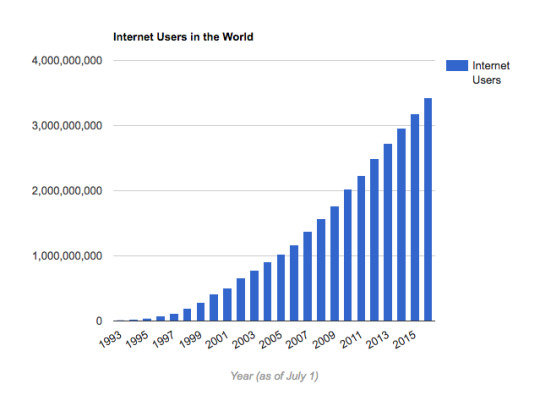
(Internet Live Stats, n.d.)
A 2001 digital native is far different from a 2016 digital native, and as technology is currently evolving and developing, and as new digital natives are born, the previous digital natives will become the digital immigrants, having to relearn and understand new technologies.

(Uni Check, 2015)
References
Internet Live Stats. Internet users. Retrieved from http://www.internetlivestats.com/internet-users/
Kadle, A. (2011). 5 Myths About Digital Natives. Retrieved from https://www.upsidelearning.com/blog/wp-content/uploads/2011/04/5-Myths-About-Digital-Natives.jpg
Prensky, M. (2001). Digital Natives, Digital Immigrants (pp. 1-6). MCB University Press. Retrieved from https://www.marcprensky.com/writing/Prensky%20-%20Digital%20Natives,%20Digital%20Immigrants%20-%20Part1.pdf
Uni Check. (2015). Digital Immigrants vs Digital Natives. Retrieved from https://unicheck.com/blog/wp-content/uploads/2015/09/pic21.jpg
2 notes
·
View notes